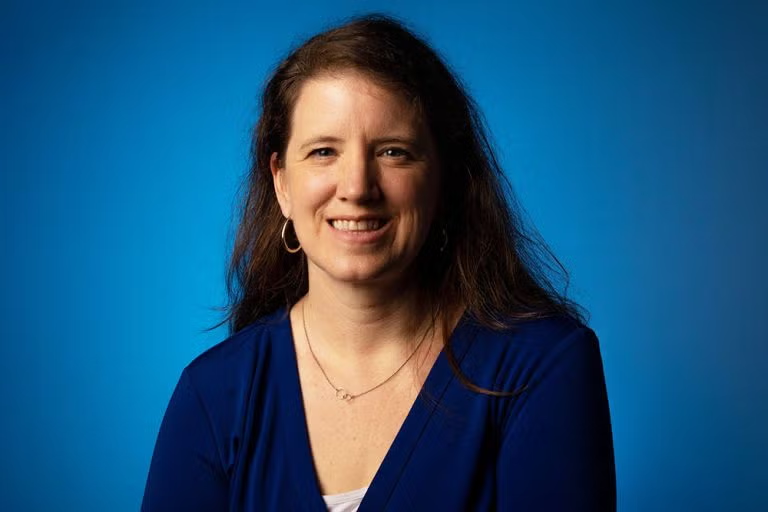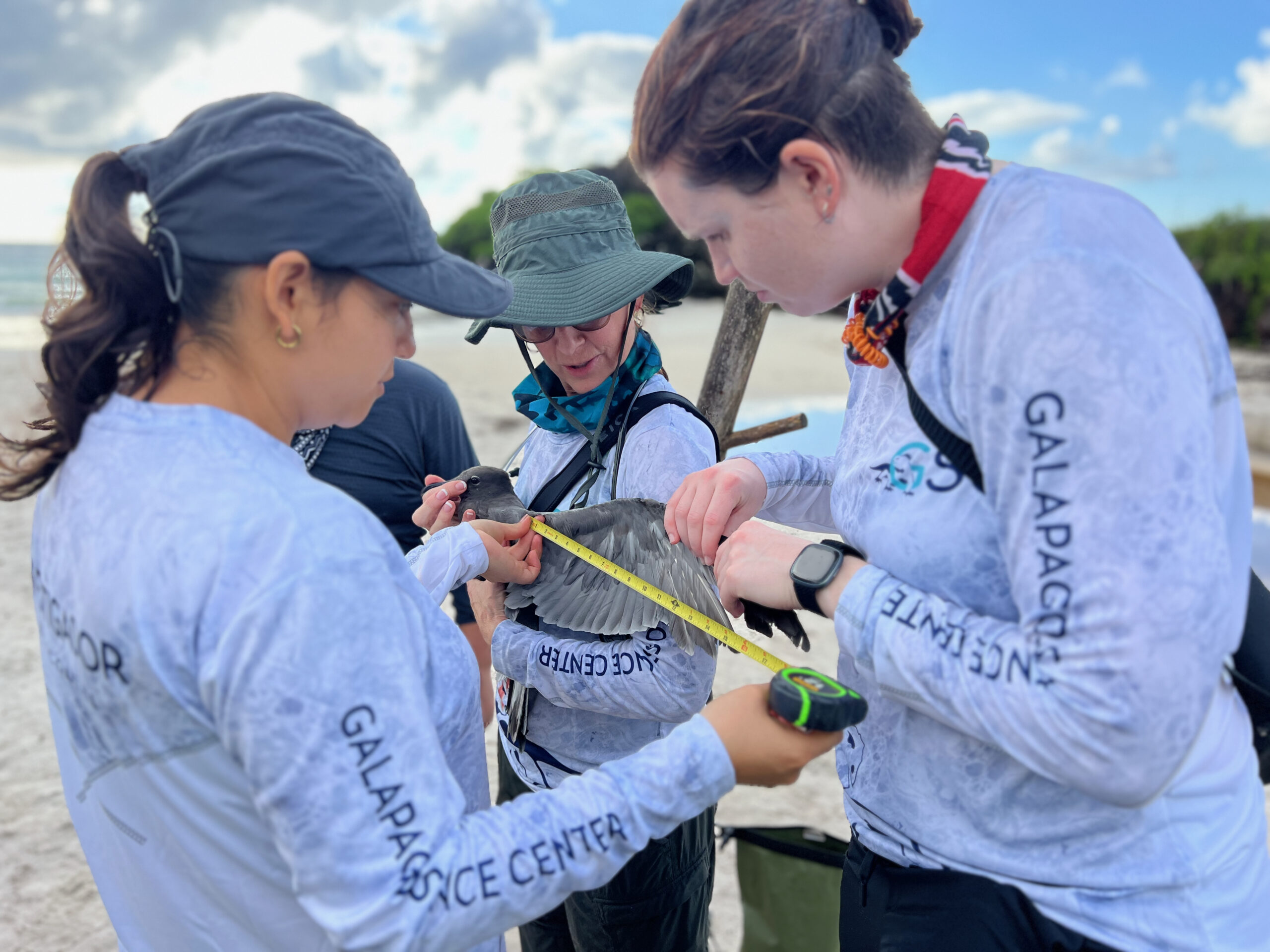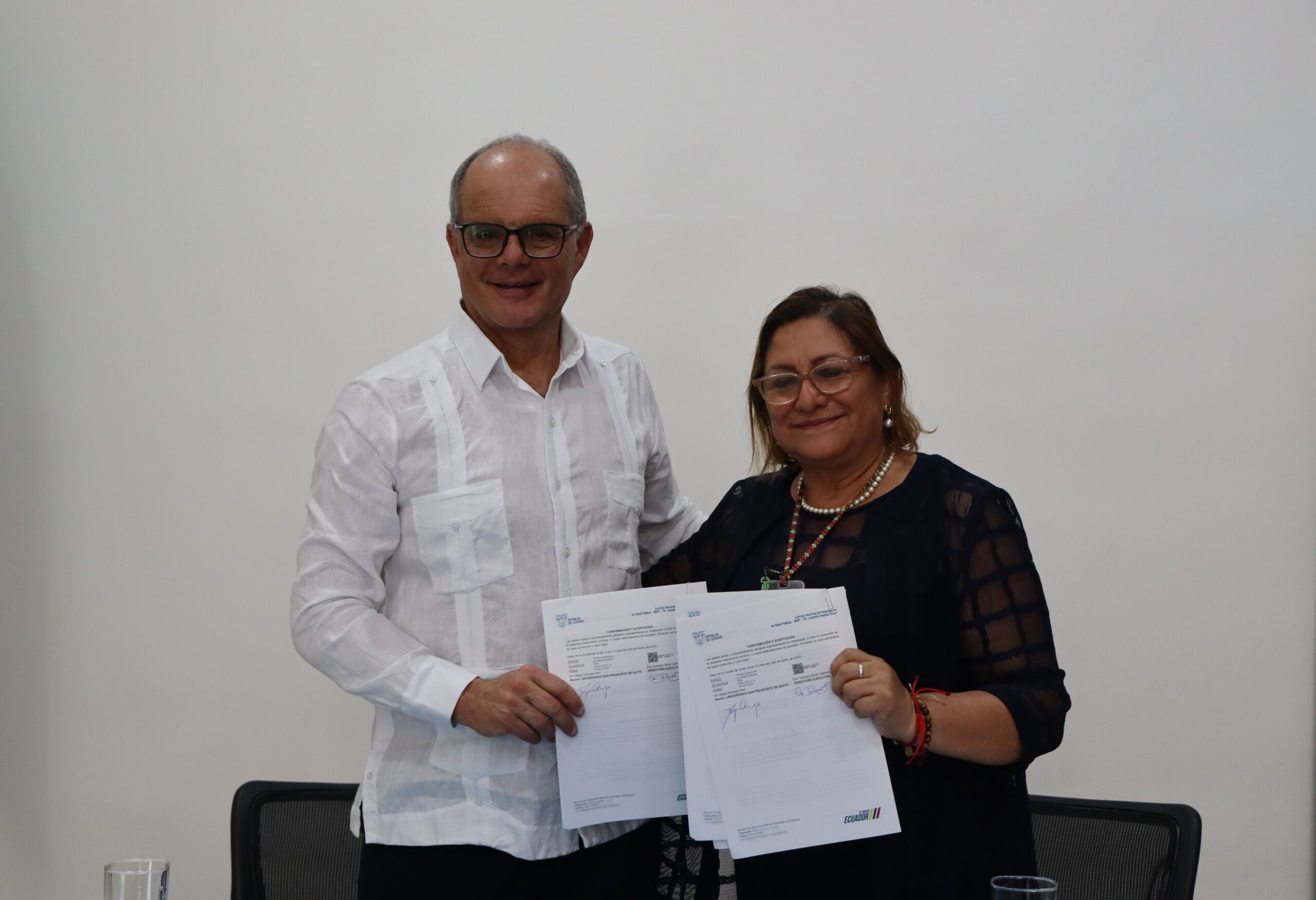Con más de una década de experiencia trabajando en las Islas Galápagos, Amanda Thompson ha contribuido a fortalecer la relación entre el Center for Galapagos Studies de la The University of North Carolina at Chapel Hill y el Galapagos Science Center, respaldada por una alianza entre las universidades San Francisco de Quito y UNC-Chapel Hill.
Amanda Thompson, es titular de la Cátedra Distinguida Thomas Willis Lambeth en Políticas Públicas en el Departamento de Antropología, profesora en el Departamento de Nutrición y miembro del Carolina Population Center. Con formación en biología humana y epidemiología nutricional, su trabajo se centra en los vínculos entre los entornos sociales, conductuales y físicos en la primera etapa de la vida y la salud a largo plazo en diversos contextos nacionales e internacionales, incluyendo Carolina del Norte, China y Ecuador. Su interés se enfoca en conocer a detalle cómo la nutrición en la infancia y la exposición al ambiente influyen en la obesidad y el riesgo de enfermedades.
Durante su periodo como directora interina del Center for Galapagos Studies, Thompson recaudó más de USD 2 millones en financiamiento para investigaciones y donaciones destinadas a apoyar la infraestructura, proyectos de profesores y estudiantes, y actividades con enfoque comunitario. Entre estos fondos se incluye una subvención William R. Kenan Jr. Charitable Trust con el que se ha establecido el Programa de Becarios Kenan Galápagos. Los estudiantes de posgrado que conforman esta primera cohorte provienen de diversas disciplinas y han iniciado recientemente sus proyectos, los cuales buscan contribuir a la construcción de ecosistemas saludables en un planeta en constante cambio.
Thompson también está comprometida con la entrega de subvenciones iniciales a investigadores de Carolina que deseen desarrollar nuevos proyectos colaborativos en las islas. Además, continuará con el desarrollo y crecimiento del Center for Galapagos Studies implementando su visión de centro de investigación interdisciplinario, orientado a soluciones y comprometido con la comunidad. Además, el centro está enfocado en desarrollar estudios de los sistemas marinos, terrestres y sociales, así como de la salud de los ecosistemas y la sostenibilidad del archipiélago.
Thompson obtuvo su licenciatura en Harvard University, su maestría en Global Health/Nutrition y su doctorado en Antropología en Emory University. Realizó un posdoctorado en la Gillings School of Global Public Health y en el Carolina Population Center, antes de unirse al Departamento de Antropología en 2007. Ha sido galardonada con el premio Michael A. Little Early Career Award de la Human Biology Association en 2014 y el Norman Kretchmer Memorial Award en Nutrición y Desarrollo de la Sociedad Americana de Nutrición en 2019.






